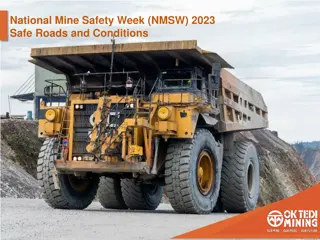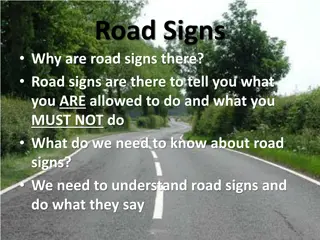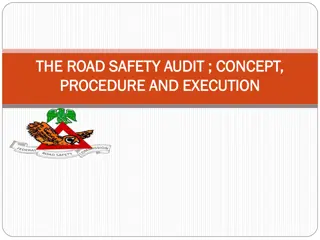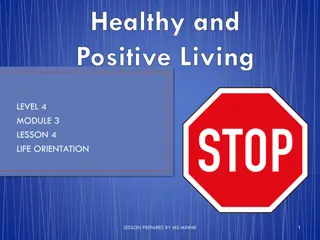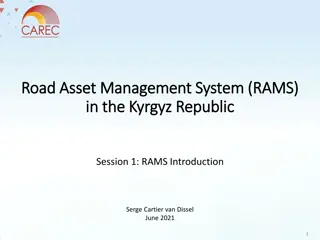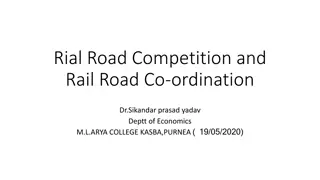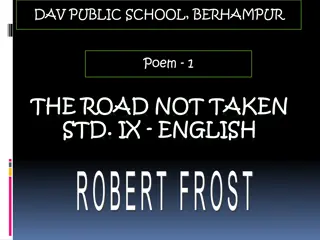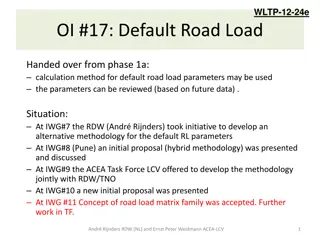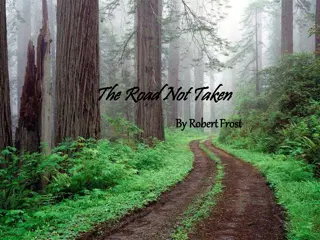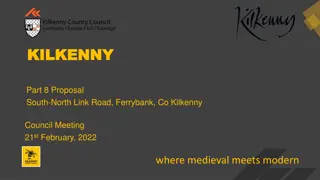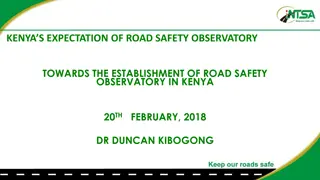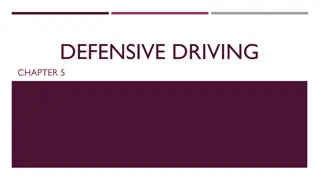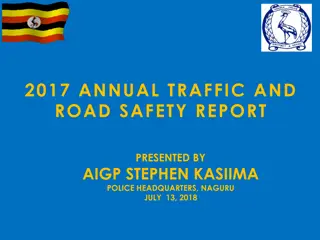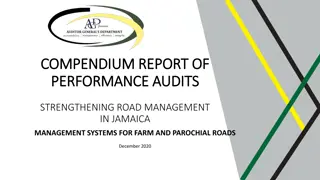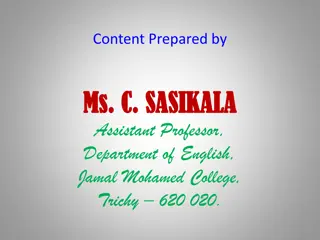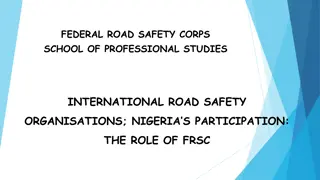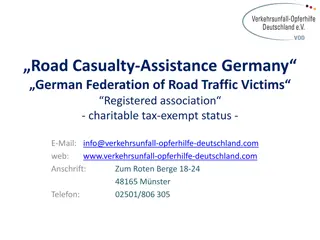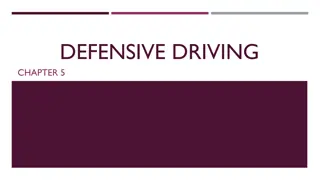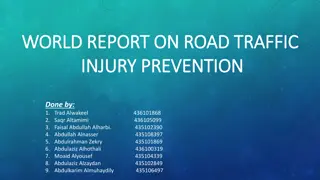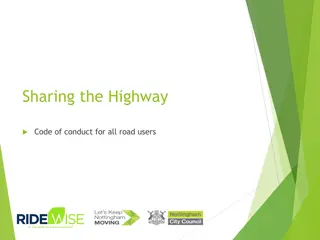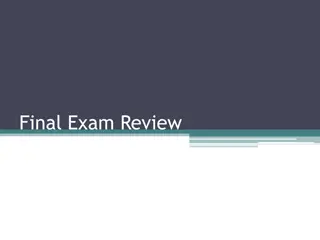
Robert Frost's Poem - The Road Not Taken Summary
Explore the profound meaning behind Robert Frost's iconic poem "The Road Not Taken," where a traveler faces a pivotal decision between two paths in the woods, symbolizing life choices and individuality. Dive into the analysis of each stanza, emphasizing the theme of personal choice and its lasting impact. Reflect on the imagery of the diverging roads and the exploration of uncertainty and regret, ultimately revealing the timeless message that the less-traveled path can make all the difference in one's journey through life.
Download Presentation

Please find below an Image/Link to download the presentation.
The content on the website is provided AS IS for your information and personal use only. It may not be sold, licensed, or shared on other websites without obtaining consent from the author. If you encounter any issues during the download, it is possible that the publisher has removed the file from their server.
You are allowed to download the files provided on this website for personal or commercial use, subject to the condition that they are used lawfully. All files are the property of their respective owners.
The content on the website is provided AS IS for your information and personal use only. It may not be sold, licensed, or shared on other websites without obtaining consent from the author.
E N D
Presentation Transcript
Robert Lee Frost(Mar 26,1874 Jan 29, 1963) American Poet Received four Pulitzer Prizes Congressional Gold Medal in 1960 for his poetical works. Initially published in England, later in America
First published in 1916 His best as pastoral who combines rustic simplicity with hidden, indirect meaning. Road symbolises journey of our life. Why road not taken most of the people often regret for the choice they didn t take in their life. So not taken
Two roads diverged in a yellow wood, And sorry I could not travel both And be one traveller, long I stood And looked down one as far as I could To where it bent in the undergrowth; Then took the other, as just as fair, And having perhaps the better claim Because it was grassy and wanted wear, Though as for that the passing there Had worn them really about the same,
And both that morning equally lay In leaves no step had trodden black. Oh, I marked the first for another day! Yet knowing how way leads on to way I doubted if I should ever come back. I shall be telling this with a sigh Somewhere ages and ages hence: Two roads diverged in a wood, and I, I took the one less travelled by, And that has made all the difference
Summary, Stanza 1 On the road of life, the speaker arrives at a point where he must decide which of two equally appealing (or equally intimidating) choices is the better one. He examines one choice as best as he can, but the future prevents him from seeing where it leads.
Summary, Stanza 2 The speaker selects the road that appears at first glance to be less worn and therefore less travelled. This selection suggests that he has an independent spirit and does not wish to follow the crowd. After a moment, he concludes that both roads are about equally worn.
Summary, Stanza 3 Leaves cover both roads equally. No one on this morning has yet taken either road, for the leaves lie undisturbed. The speaker remains committed to his decision to take the road he had previously selected, saying that he will save the other road for another day. He observes, however, that he probably will never pass this way again and thus will never have an opportunity to take the other road.
Summary, Stanza 4 In years to come, the speaker says, he will be telling others about the choice he made. While doing so, he will sigh either with relief that he made the right choice or with regret that he made the wrong choice. Whether right or wrong, the choice will have had a significant impact on his life.
The need to make choices in life We have to choose between two equally good option wisely The choice may make all the difference in our lives As human beings, we most probably look back , wonder and regret that we are unable to choose both the options or choose the other option. (regret/sadness) So, choose wisely and accept the challenges and consequences of the choice. Be bold, creative, original and adventurous in taking up challenges few people choose. Be brave to explore the opportunities and possibilities that we face along the road we have chosen. (satisfied/happiness)
We have to take the opportunities that life has to offer us to make a choice Think carefully before we make choices We have to make the right choice and understand ourselves Should not have the feeling of regret for our choice If we make the right choice, we can have a contended life Appreciate the beauty of nature
Two roads diverged in a yellow wood. in this phrase there is two image evoking words, diverged and yellow. The words two roads diverged evokes the sight sense. There is an obvious road that splits into two completely different roads. Another word that evokes sight is yellow. The yellow is describing the road, again. There are two different roads, sunny and bright. To where it bent into the undergrowth. There is one major image evoking word is undergrowth. Undergrowth sets an image of grass and over grow trees and greenery. One of the paths winds on into a world of green.
"sigh" The word sigh in stanza 4 emphasises the traveller depression/sadness for the outcome of the decision he made.
The line "Because it was grassy and wanted wear, in the third stanza It is an example of personification because the poet says that the road while we all know that a road can not think and would not have any "wanted wear" desire at all.
the road The road symbolizes the traveller has to make in life in order to progress and continue on.
The road is a metaphor for the journey of life The two roads is compared to the two choices in life The poet compares himself to a traveller The undergrowth at the end of one of the roads is the obstacles and challenges/ it is also hard to see what the future held for him The grass on one of the roads had hardly been stepped on, it means not many people had chosen that kind of life
There is a regular rhyming pattern in this poem. The pattern is as follows: (Quintain) abaab cdccd efeef ghggh.

